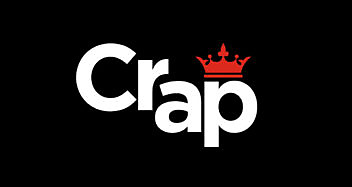


Marketing with the door open, part one: The why, the what and the how of a B2B Marketing campaign
Stan Woods | 10. 07. 2024
See what all the gory details of what happens when a B2B agency runs a marketing for itself.
Read more




One of the amazing — and often infuriating — things about B2B marketing is that it’s always changing. It isn’t for the complacent: it’s messy, fun and WIP as hell. That’s why we share the lessons we’re picking up as we clamber along the learning curve.
Have a look around. Drop a controversial comment. Or give us a real piece of your mind.



B2B marketing / B2B SEO
Stan Woods | 10. 07. 2024
See what all the gory details of what happens when a B2B agency runs a marketing for itself.
Read more
B2B marketing / B2B SEO
See what all the gory details of what happens when a B2B agency runs a marketing for itself.
Stan Woods | 10. 07. 2024

B2B marketing / B2B SEO
Search engine marketing is missing out on a big piece of marketing strategy, and it’s hurting your CPC.
Joe Strugs | 02. 07. 2024

B2B marketing / Brand
Social media is rented land, and marketers need to stop building on it.
Stan Woods | 07. 06. 2024

B2B marketing / Brand
Find out what’s changed since we released our first manifesto 14 years ago, why brand is a forgotten superpower — and what to do now.
Stan Woods | 30. 05. 2024

B2B marketing
What Gong’s Chief Evangelist, Udi Ledergor, thinks about the new B2B marketing playbook, the real goal of content marketing and the 95-5 rule.
Stan Woods | 08. 05. 2024

B2B marketing
This is one of a series of blogs about the changing B2B Go-To-Market landscape. You can check out the others in the series at the bottom of this piece. If…
Neil Stoneman | 25. 04. 2024

B2B marketing
Want to have a meaningful discussion about a new B2B go-to-market (GTM) playbook? You need Jon. We sat down with him to hear his thoughts on GTM’s next…
Stan Woods | 16. 04. 2024

Sales & Marketing alignment
Trust between Sales and Marketing is at an all time low – and sellers are taking marketing into their own hands. Here’s how to get the relationship back…
Stan Woods | 09. 04. 2024

ABM
I don’t want to hear about spear-fishing ever again. I’m Charlie, the head of ABM at Velocity. And I have a bone to pick with tired ABM metaphors. Good…
Charlie Langley | 28. 03. 2024

Here they are. The latest (and greatest? You decide) of our articles, hot off the press.

B2B marketing / B2B SEO
See what all the gory details of what happens when a B2B agency runs a marketing for itself.
Stan Woods | 10. 07. 2024

B2B marketing / B2B SEO
Search engine marketing is missing out on a big piece of marketing strategy, and it’s hurting your CPC.
Joe Strugs | 02. 07. 2024

B2B marketing / Brand
Social media is rented land, and marketers need to stop building on it.
Stan Woods | 07. 06. 2024

B2B marketing / Brand
Find out what’s changed since we released our first manifesto 14 years ago, why brand is a forgotten superpower — and what to do now.
Stan Woods | 30. 05. 2024

B2B marketing
What Gong’s Chief Evangelist, Udi Ledergor, thinks about the new B2B marketing playbook, the real goal of content marketing and the 95-5 rule.
Stan Woods | 08. 05. 2024

B2B marketing
This is one of a series of blogs about the changing B2B Go-To-Market landscape. You can check out the others in the series at the bottom of this piece. If…
Neil Stoneman | 25. 04. 2024
We will send the latest stuff written just for B2B content marketers exactly like you. Sound good?




Somehow we found ourselves with an amazing bunch of like-minded marketers for clients. When that happens, great things tend to pop out.

Why the content marketing deluge will force all B2B marketers to raise their game and build a great content brand.

It may sound all tree-huggy but it turns out culture matters. A lot. So we tried to capture ours.

Marketers are trained to put their best foot forward and ignore the downsides of their products. This is about doing the exact opposite: finding your…

Hey look: a teeny-tiny cookie request. Would you mind? It’d help us out. Click here to read our privacy policy to see why. Or hit “customize” if you’re fancy like that.
Some of these cookies are essential, while others help us to improve your experience by providing insights into how the site is being used.
For more detailed information on the cookies we use, please check our privacy policy.
Necessary cookies enable core functionality. The website cannot function properly without these cookies, and can only be disabled by changing your browser preferences.
Analytical cookies help us to improve our website by collecting and reporting information on its usage.
Avertising cookies help us to understand if you visited our site after seeing or clicking an online advert.
Personanlization cookies help us to provide you with a personalized browsing experience.